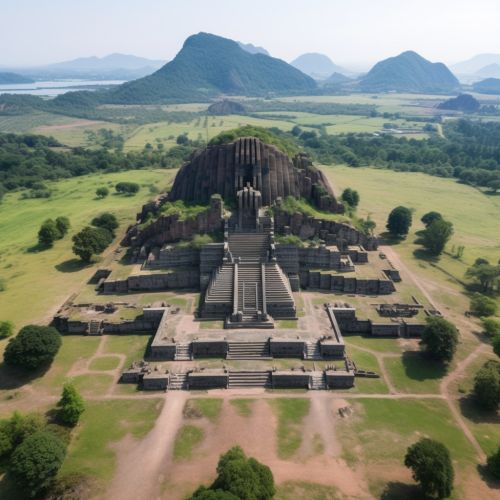Silla
History
Silla was one of the Three Kingdoms that ruled the Korean Peninsula from 57 BC to 935 AD. The kingdom was founded by Park Hyeokgeose, who became the first king, known as Hyeokgeose of Silla. The kingdom was initially a federation of small tribes in the southeastern region of the peninsula, which expanded over time to encompass much of modern-day South Korea.


The early period of Silla, known as the Proto-Three Kingdoms Period, saw the kingdom in constant struggle with its neighbors, Goguryeo and Baekje. Silla eventually formed an alliance with the Chinese Tang Empire, which helped it conquer Baekje in 660 AD and Goguryeo in 668 AD. This led to the unification of the Korean Peninsula under the rule of Silla, marking the start of the North South States Period.
Society and Culture
Silla society was highly stratified, with a rigid bone rank system that determined a person's social status, political rights, and even marriage prospects based on their lineage. The highest rank was the "sacred bone" (seonggol), which was reserved for royalty. Below them were the "true bone" (jingol) aristocrats, followed by the "head rank" (tupum) class.
The culture of Silla was heavily influenced by Buddhism, which was introduced to the kingdom in the 4th century. Many of the kingdom's most notable architectural and artistic achievements, such as the Seokguram Grotto and Bulguksa Temple, reflect this influence.
Economy
The economy of Silla was largely agrarian, with rice cultivation being the primary agricultural activity. The kingdom also engaged in trade with neighboring countries, exporting goods such as gold, silver, iron, and high-quality ceramics known as Gaya celadon.
Decline and Legacy
The fall of Silla was precipitated by a combination of internal strife, external invasions, and economic difficulties. The kingdom was eventually overthrown by Goryeo, a state founded by a rebel general, which went on to unify the peninsula and establish a dynasty that lasted for several centuries.
The legacy of Silla is evident in many aspects of modern Korean culture, from its legal and political institutions to its art, architecture, and language. The historical city of Gyeongju, once the capital of Silla, is a UNESCO World Heritage Site and a major tourist destination that offers a glimpse into the kingdom's rich history.
